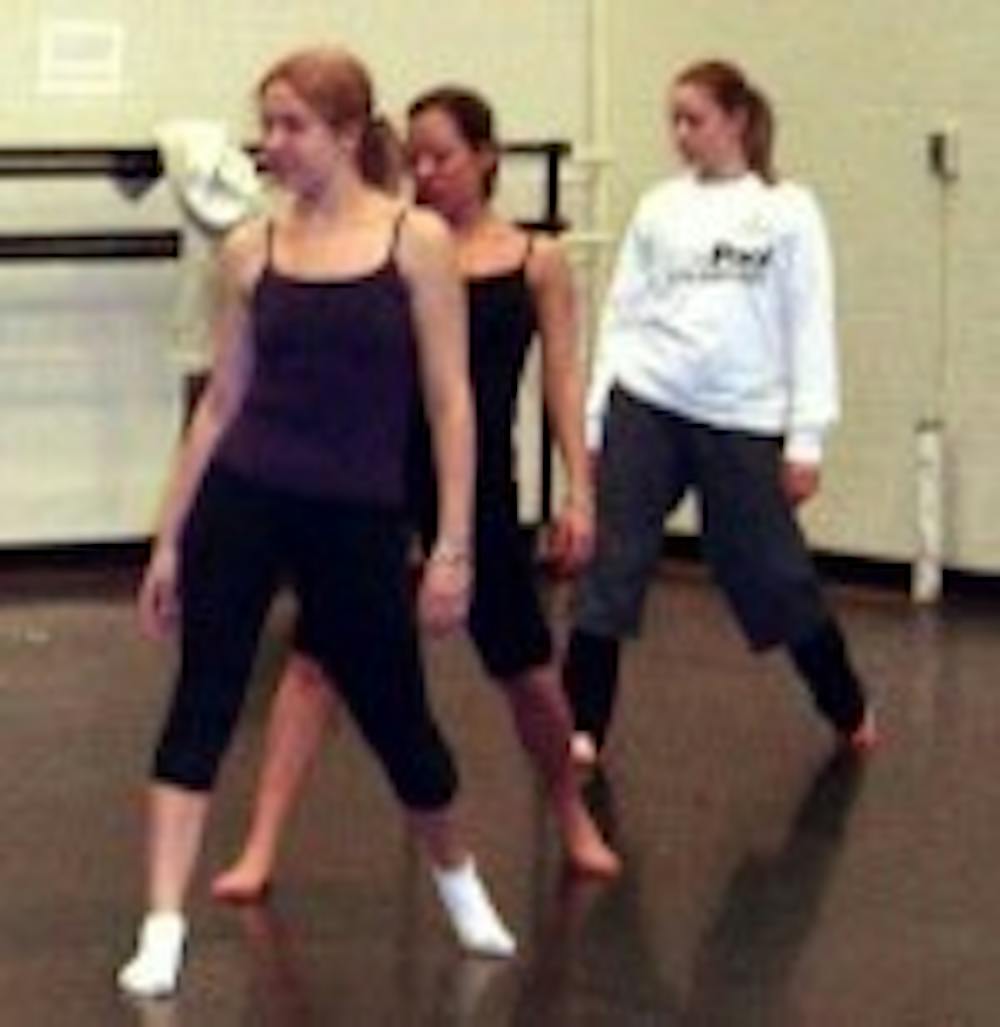Dancing well requires grace, rhythm, agility and control. To be a student in the dance program in UB's Department of Theatre and Dance requires even more than that. It is a commitment of time to focus the mind, to develop a flexible body and to push oneself harder among many other dancers with the same goals.
Gina Pero, a UB dance major who graduated in 2002 and is a current dance artist performing in Las Vegas, stressed that the stereotypical view of a dance major is far from the reality of a steady regiment of dance drills and studying.
"We take gen. eds just like everyone else. Plus, we have to know dance history, the founders of dance, teaching dance and anatomy," she said. "We don't just dance ... we have practicals and exams as well."
Dance majors dispute the notion that they are less academically oriented than those in other majors.
"People think dance majors are stupid and that it's an easy major," said Joice Passos, a sophomore dance major. "Most of us are double majors."
Time spent between practicing in dance studios, studying and production rehearsals adds up to a grueling schedule. Amanda Chugg, a dance major, described her day, from a 7:30 wake-up, through a full day of classes, to evening rehearsals that can run until 11 p.m. Returning home can mean additional studying, but hopefully a more peaceful conclusion.
"I pass out," said Chugg.
"Most people don't see and understand the amount of work that goes into a show," said Brittany Ward, a junior dance major. "It requires weekends, sometimes late rehearsals, and sometimes extra rehearsals."
The constant on-the-go lifestyle leaves little time for socializing. Ward laughed as she explained how another dancer deals with having to say "no" to outside recreation:
"My girlfriend has a sweatshirt that just says 'I Can't,'" she said.
In addition to enriching their minds with the standard books and reports routine, dance majors have the added responsibility of keeping themselves in shape. Unlike nearly any other major, staying healthy is crucial to advancing to new and more challenging steps.
"People don't consider dancing an athletic sport," said Pero, "but we train very similarly to how athletes train."
The daily routine of twisting and turning strengthens the proper muscles, but can also cause a career-threatening injury. Ward's description of dance injuries is far removed from the sedate atmosphere of the ballet stage. Split toes, ripped muscles, and fat bruises are among the common injuries of a dance major.
"When I got back to my dorm one night, I had to sit and study with ice on me," she said.
Even in her office in Alumni Arena, Tressa Crehan, an assistant professor and co-director of the dance program, knows the importance of keeping the muscles limber.
Crehan's 22 years at UB has afforded her the opportunity to see many students through the hardships and rewards of training for the competitive dance world.
"The program has a very good reputation and is starting to grow, not just nationally but also internationally into Canada," she said.
Space and financial considerations limit the number of students who enter the program, but also make the program more competitive. Crehan estimated UB receives 130 to 150 applications every year.
"We try to find about 25 to 30 students per class," said Crehan.
UB's program not only prepares a dancer with technical and academic skills, as Crehan explained, but also fosters a professional ethic between the dancer and all involved in any production.
"We do stress that they do need to respect other artists' efforts, their thoughts, and their work," said Crehan.
Many within the major and the profession agree that to succeed, a dancer must be driven by an innate love for dancing. The dancer must possess an internal ability to push forward in spite of split toes or sassy competitors.
Pero explained the one thing a dancer cannot thrive without.
"Passion. To succeed in something, you need to have a passion in what you're doing. I can't say enough how important passion is. That's how I got through my four years here and that's how I look at it in what I'm doing now," said Pero.





